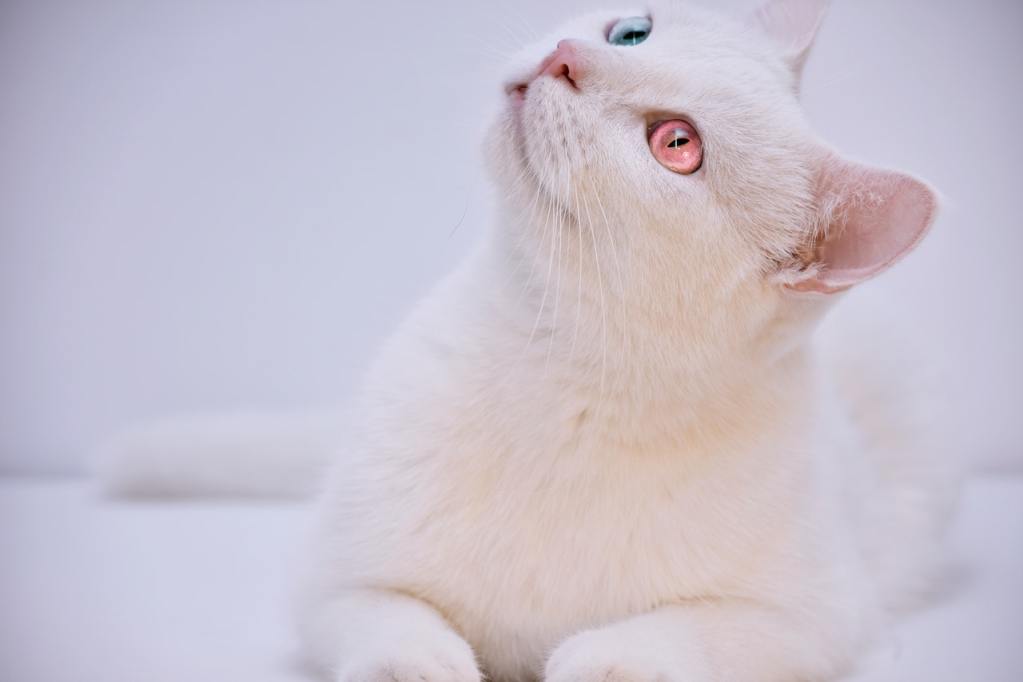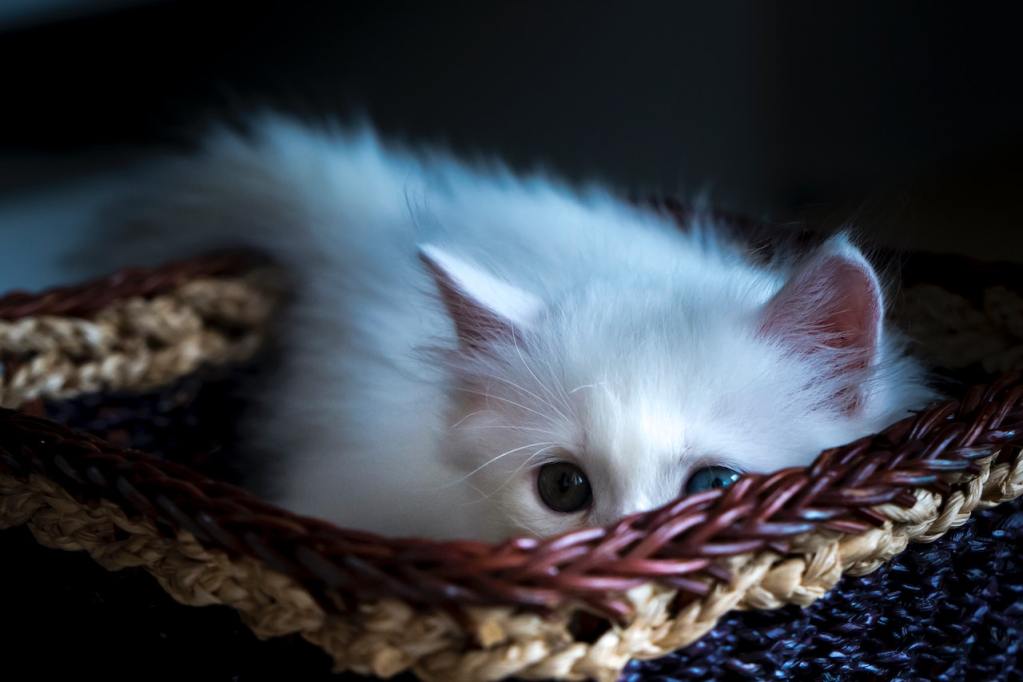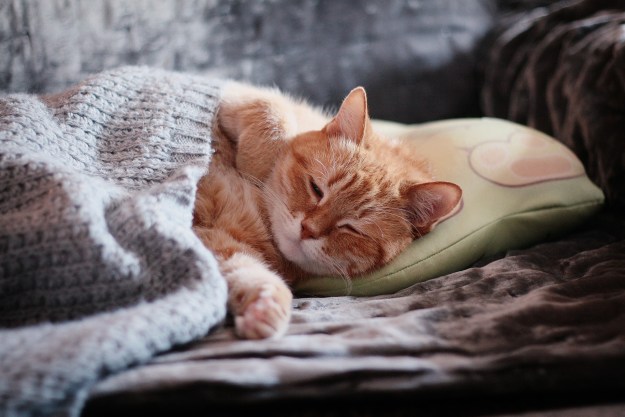
With their striking white fur, pink noses, and often pale blue eyes, albino cats are a unique and rare breed that has captivated the attention of many cat lovers around the world. That being said, there’s a lot to learn about these felines beyond their stunning appearances, such as their genetics, health concerns, and even their significance in popular media. Here’s what you should know about these incredible cats.
Health and genetics
Albinism is a genetic condition that results in a lack of pigmentation in the skin, hair, and eyes. In cats, the condition is caused by a mutation in one of several genes responsible for producing melanin, the pigment that gives color to the hair, skin, and eyes. Unlike other white cats, which get their pristine coats from a dominant white or white spotting gene, albino cats lack melanin altogether.
While albino cats are known for their icy blue eyes, their lack of melanin can also result in pink or red eyes. However, albinism in cats is sometimes more than just a cosmetic issue. It can also affect their hearing, as the absence of pigment in the eyes can result in deafness, with roughly 40% of white or albino cats with at least one blue eye being born with congenital deafness. Not only can their hearing be affected, but albino cats also exhibit an increased sensitivity to light. (Contrary to popular belief, albino cats aren’t more prone to color blindness than other cats.)
Another health concern for albino cats is their increased risk of developing skin cancer. Melanin not only provides color to the hair and eyes, but it also protects the skin from the harmful effects of UV radiation from the sun. Without melanin, albino cats are at a higher risk of developing skin tumors and other skin conditions. When your fur baby has an increased risk of sunburn and skin cancer, it’s all the more important for albino cat parents to take precautions to protect their feline family members from excessive sun exposure.

Albino cats in the media
In popular media, albino cats are often portrayed as mysterious or extravagant creatures. From pink-ribbon-wearing Marie of The Aristocats fame to Bond villain Blofeld’s white fluff in From Russia with Love, these snowy-white felines are famous all over the world.
However, these portrayals can contribute to misconceptions about albino cats, which aren’t always as prim and proper as Marie — and certainly aren’t everyday sidekicks to psychopathic reprobates. No matter what you see in the movies, remember that each cat has their own distinctive personality, and your job as a pet parent is to provide a loving home for your fur baby.
Albino cats are as fascinating as they are beautiful, and they’ve captured the attention of many cat lovers around the world. Known for their striking appearance, it’s ultimately their genetics that make them so unique. By taking precautions to protect their vision and skin health, owners of albino cats can help their feline friends lead happy and healthy lives.
Editors' Recommendations
- Wondering why cats chirp? Fascinating reasons why your cat chirps at birds (and you)
- How to cat-proof your balcony before the unthinkable happens
- There’s a totally normal reason cats throw up after eating grass – here’s why
- What you need to know about crating a cat at night
- This video of a confused kitty discovering a cat water fountain is adorable




